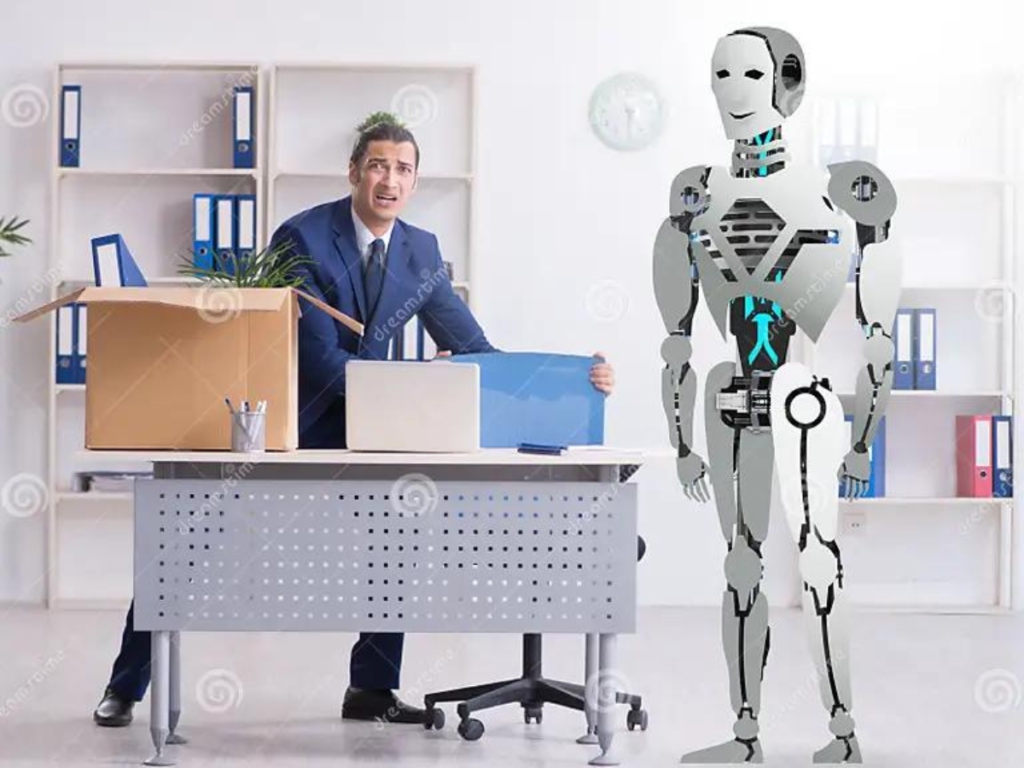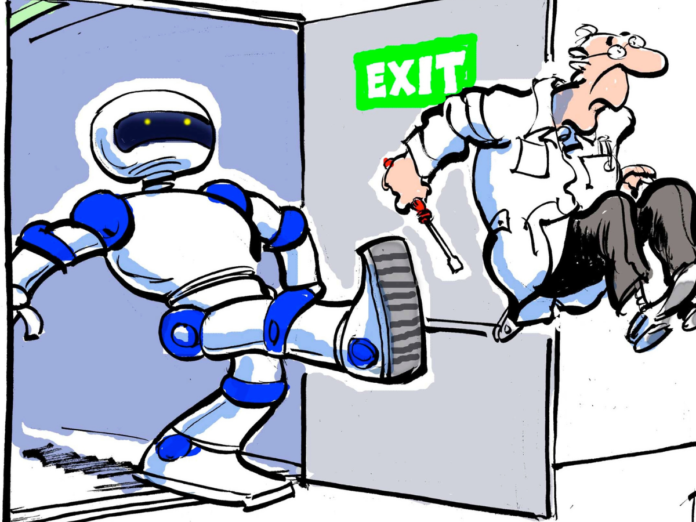Technology Replace Humans Introduction
In the ever-evolving landscape of technology, the rise of Artificial Intelligence (AI) has ignited a profound and thought-provoking question: Can technology replace humans? This article delves into the implications of AI’s rapid advancements and its potential impact on various aspects of human life and society.
Table of Contents
The Rise of Artificial Intelligence (AI)
AI has made remarkable strides in recent years, enabling machines to perform tasks that were once exclusive to human intellect. It has empowered various industries to achieve unprecedented levels of efficiency and productivity.
Enhancing Efficiency and Productivity

3.1 Automating Repetitive Tasks
One of the most significant advantages of AI is its ability to automate repetitive and mundane tasks. This automation frees up human resources to focus on more complex and creative aspects of their roles, boosting overall productivity.
3.2 Streamlining Business Processes
AI-driven tools and systems have revolutionized how businesses operate. From supply chain management to customer service, AI streamlines processes, reducing costs, and enhancing customer experiences.
AI in the Workforce
4.1 Shaping the Job Landscape
The integration of AI in the workforce has led to concerns about job displacement. While certain jobs may be automated, new roles will emerge, emphasizing skills like problem-solving, creativity, and emotional intelligence.
4.2 The Role of Human-AI Collaboration
The most promising future lies in human-AI collaboration. By combining human ingenuity with AI’s computational power, we can achieve groundbreaking results in science, medicine, and beyond.

AI in Education
5.1 Personalized Learning Experiences
AI-driven educational platforms offer personalized learning paths based on individual strengths and weaknesses. This tailored approach fosters better learning outcomes and ensures students receive the support they need.
5.2 Transforming the Role of Educators
AI is not meant to replace teachers but rather to complement their expertise. Educators can utilize AI to analyze student performance data, identify learning gaps, and devise targeted interventions.
AI in Healthcare
6.1 Precision Medicine
AI’s ability to analyze vast amounts of medical data has opened the door to personalized treatments and precision medicine. This approach revolutionizes patient care, leading to more effective treatments and better patient outcomes.
6.2 AI-assisted Diagnostics
AI-powered diagnostic tools assist healthcare professionals in accurately and quickly diagnosing various conditions. Early detection and intervention become more feasible, saving lives and reducing healthcare costs.
AI in Creative Industries
7.1 AI-Generated Art and Music
AI’s foray into the creative realm has resulted in the generation of art, music, and even literature. While it sparks new forms of expression, it also raises questions about the essence of creativity and artistic authenticity.
7.2 Impact on Traditional Creative Professions
Traditional creative professionals face both opportunities and challenges as AI becomes more prevalent. Embracing AI tools can enhance their creative processes, but maintaining artistic uniqueness remains essential.
The Ethical Dilemma of AI
8.1 Ensuring Fairness and Bias-Free Algorithms
AI algorithms must be developed and implemented with fairness in mind. Avoiding bias in AI systems is crucial to prevent perpetuating existing societal inequalities.
8.2 Addressing Privacy and Security Concerns
The widespread adoption of AI raises concerns about data privacy and security. Robust measures must be in place to protect sensitive information from misuse and unauthorized access.
The Future of Human-AI Interaction
9.1 Embracing Change and Emphasizing Human Qualities
As AI continues to evolve, embracing change becomes vital. By emphasizing uniquely human qualities like empathy, creativity, and critical thinking, we can carve a niche alongside AI in the future workforce than technology relace human.
9.2 Cultivating Emotional Intelligence
While AI is adept at processing data, it lacks emotional intelligence. Humans can nurture their emotional skills, enabling them to excel in areas where AI falls short, such as emotional support and complex decision-making. but not expect to technology by emotional support than will work done fast and technology replace huaman.
Conclusion
The integration of AI into our lives has brought about transformative changes, impacting various sectors from education to healthcare and beyond. Rather than technology replace humans, AI has the potential to augment our capabilities, leading to a more efficient and innovative world.





